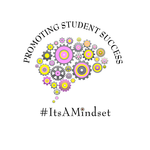
2017 Annual Conference
November 8–10, 2017
Jekyll Island Convention Center, Jekyll Island, GA
Digital Addiction Awareness for School Counselors: Navigating student success
Presenter Name(s)
Dr. Julie Chi9bbaro, Dr. Lacey Ricks, Dr. Christy Land
Target Audience
Middle
Secondary
Counselor Educator, Supervisor
Abstract
Today, the internet has become part of daily life providing global communication, access to information as well as a providing a provision of entertainment (Anderson, Steen, & Stavropoulos, 2016). However, the use of technology can become compulsive and develop into addictive types of behaviors. Abstract
Description
Today, the internet has become part of daily life providing global communication, access to information as well as a providing a provision of entertainment (Anderson, Steen, & Stavropoulos, 2016). However, the use of technology can become compulsive and develop into addictive types of behaviors. Internet addiction is viewed by researchers as being important for further study due to its negative consequences and its impact on interpersonal relationships, everyday functioning, and emotional well-being (Akin, 2012; Baker & Algorta, 2016; Young, 1998; Zhang, Brook, Leukefeld, & Brook, 2016). In fact, internet addiction and its symptoms mirror those from substance related addictions including: depression (Young & Rogers, 1998) unpredictable behavior and mood (Hsu, Wen & Wu, 2009), alcohol and substance use problems, affective disorders, and conflictual parent-child relationships (Zhang, et al.). Counselor educators must be prepared to educate counseling students about the methods of treating clients/students with digital addictions. The goals of this presentation are to discuss the signs of digital addiction, the consequences of digital addiction, and the tools for the fusion of digital addiction awareness into school counseling programs. This connects to the theme by promoting awareness of emerging trends in counseling and by promoting best practice for school counselors. Due to the increase of technology uses in our lives, it is obvious that digital addiction will remain an area of concern.
Audience participation is expected and handouts will be offred to all attendees
References
Akin, A. (2012). The relationship between internet addiction, subjective vitality,
and subjective happiness. Cyber psychology, Behavior, and Social
Networking, 15, 404-410.
Anderson, E.L., Steen, E., & Stavropoulos, V. (2016). Internet use and problematic
internet use: A systematic review of longitudinal research trends in
adolescence and emergent Adulthood. International Journal of Adolescence
and Youth, 1-25.
Baker, D.A., & Algorta, G.P. (2016). The relationship between online social
networking and Depression: A systematic review of quantitative studies.
Cyber psychology, Behavior, And Social Networking. 19, (1), 638-648.
Hsu, S.H.,Wen, M.H., & Wu, M.C. (2009). Exploring user experiences as predictors
of MMORPG Addiction. Computers and Education, 53, 990-999.
Young, K.S. (1998). Internet addiction: The emergence of a new clinical disorder.
Cyber Psychology And Behavior, 1, (3).
Young, K.S. & Rogers, R.C. (1998). The relationship between depression and
internet addiction. Cyber Psychology and Behavior, 1 (1), 25-28.
Zhang, C., Brook, J.S., Leukefeld, C.G., & Brook, D.W. (2016). Longitudinal
psychosocial factors related To symptoms of internet addiction among
adults in early midlife. Addictive Behaviors, 62, 65-72.